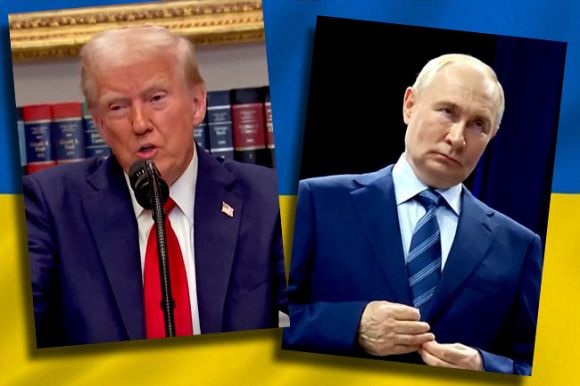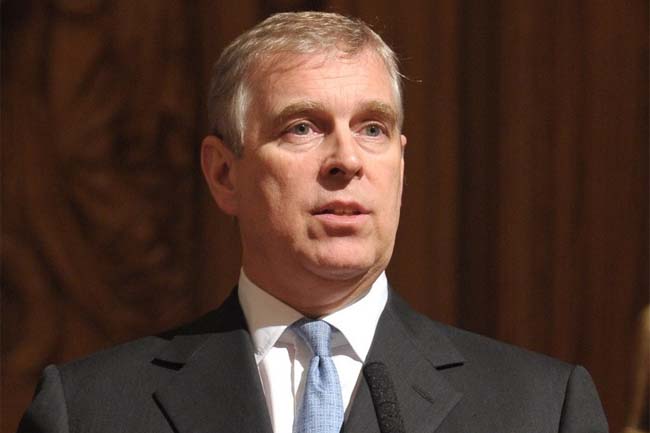While Australia is not directly involved in the Ukraine war, the implications of a Trump-Putin meeting could be profound, writes Vince Hooper.
THE PROSPECT of a meeting between Russian President Vladimir Putin and U.S. President Donald Trump to discuss the Ukraine conflict could have far-reaching consequences — ones that extend beyond Europe and directly impact Australia. While seemingly distant, such a development could reshape global power dynamics, economic conditions and security considerations in the Asia-Pacific.
Geopolitical shifts: A new world order?
A potential Trump-Putin deal could alter the global balance of power. If Trump were to weaken NATO or reduce U.S. commitments to European security, it would send a message that authoritarian leaders can redraw international borders with little consequence. Such a shift could embolden regional actors – China, in particular – to adopt a more assertive stance in the Indo-Pacific.
For Australia, a country deeply reliant on U.S. security guarantees, this could mean rethinking its defence posture and regional alliances.
Furthermore, Australia's longstanding trust in the U.S.-led global order could be shaken. If Trump deprioritises traditional alliances in favour of transactional deals, Australia may need to strengthen ties with regional partners like Japan, India and Southeast Asia to maintain strategic stability.
The U.S.-Australia alliance: A test of loyalty?
The Trump 2.0 office is bringing in an “America first” realignment of U.S. foreign policy. He has previously questioned the value of alliances and while AUKUS remains a cornerstone of U.S.-Australia defence ties, its long-term future under a second Trump term isn’t guaranteed.
A scenario where the U.S. reduces its commitment to NATO or Asia-Pacific security could force Australia into a difficult position: double down on its reliance on U.S. protection or develop a more independent defence strategy.
Would Australia be forced to increase defence spending to compensate? Already committed to acquiring nuclear submarines, Canberra may need to accelerate investments in missile defence, cyber warfare and intelligence-sharing partnerships. A weakened U.S. security umbrella could also reignite debates over whether Australia should develop its own nuclear deterrent.
Economic consequences: Trade and energy disruptions
A negotiated settlement in Ukraine, depending on its terms, could have substantial economic ramifications. If Trump lifts sanctions on Russia or shifts U.S. energy policy, global commodity prices – especially oil and gas – could fluctuate significantly. This would have a ripple effect on Australia's resource-based economy.
Additionally, Europe’s demand for Australian critical minerals (such as lithium and rare earth elements) could shift if a deal allows Russia to re-enter global supply chains. Australian exporters could face stiff competition if Russian resources flood the market, making it harder to maintain price stability.
Meanwhile, Trump's unpredictability in trade policies could bring fresh uncertainty to Australia’s economic relationship with the U.S. Will his administration impose tariffs, demand trade renegotiations or push for more aggressive economic nationalism? Or even demand mineral rights in exchange for security guarantees, as Trump is hinting with the Ukraine?
Australia, as a middle power, may find itself caught in the crossfire of great-power economic battles.
Diplomatic challenges: Values vs interests
Australia has been a staunch supporter of Ukraine, providing military and humanitarian aid while condemning Russian aggression. If Trump were to negotiate a deal that effectively rewards Putin’s invasion, Canberra would face a dilemma — whether to continue aligning with U.S. policy or stand firm on principles of sovereignty and international law.
This could test Australia’s diplomatic agility. Should it maintain credibility with UK and European allies and stand by Ukraine? Or should it pragmatically adjust to a potential U.S.-Russia détente? Given NATO's growing importance in countering Chinese influence, alienating European partners could have long-term strategic costs for Australia.
Domestically, the Australian political landscape could become more polarised. Would the Albanese Government openly challenge Trump’s approach, or take a more measured response to avoid tensions with Washington? Public sentiment – historically supportive of Western unity – could also push Canberra to take a firmer stance, even at the risk of straining U.S. ties.
Regional security concerns: China watches closely
Perhaps the most immediate concern for Australia is how China interprets a U.S.-Russia détente. If Beijing sees a weakened Western response to aggression in Ukraine, it might be emboldened in the South China Sea or even regarding Taiwan.
Australia, already at odds with China over security issues, could find itself in a more precarious position, needing to enhance regional partnerships with Japan, India and Southeast Asian nations. Increased military assertiveness from China could also escalate tensions over the Solomon Islands and Papua New Guinea — both areas where Beijing has sought greater influence, directly challenging Australia’s regional leadership.
Cybersecurity and hybrid warfare risks
A weakened Western front could encourage Russia and China to ramp up cyber operations targeting Australia. Given previous Russian-linked cyberattacks on Western nations, Australia could see increased attempts at election interference, disinformation campaigns and economic espionage.
This raises the question: Is Australia prepared to counter hybrid warfare tactics? Investment in cyber defence capabilities, intelligence-sharing with allies and stronger counter-disinformation strategies may become more urgent if geopolitical instability rises.
A wake-up call for Australian policy?
While Australia is not directly involved in the Ukraine war, the implications of a Trump-Putin meeting could be profound. Canberra will need to remain proactive in reinforcing regional alliances, strengthening economic resilience and ensuring its foreign policy remains adaptable.
A world where Trump makes transactional deals with authoritarian leaders is one where Australia cannot afford to be a passive observer. This may be the moment for Australia to reassess its long-term strategic autonomy — before global instability forces its hand. Stormy seas ahead.
Vince Hooper is a proud Australian/British citizen who is professor of finance and discipline head at SP Jain School of Global Management with campuses in London, Dubai, Mumbai, Singapore and Sydney.
 This work is licensed under a Creative Commons Attribution-NonCommercial-NoDerivs 3.0 Australia License
This work is licensed under a Creative Commons Attribution-NonCommercial-NoDerivs 3.0 Australia License
Support independent journalism Subscribe to IA.

Related Articles
- Ukraine’s incursion into Kursk offers possibilities and difficulties
- U.S. global chess game could lead to World War III
- Ukrainians continue living in fear of death
- Sovereignty mocked in Ukraine 'proxy war'
- Volunteers risk their lives to fight for Ukraine














